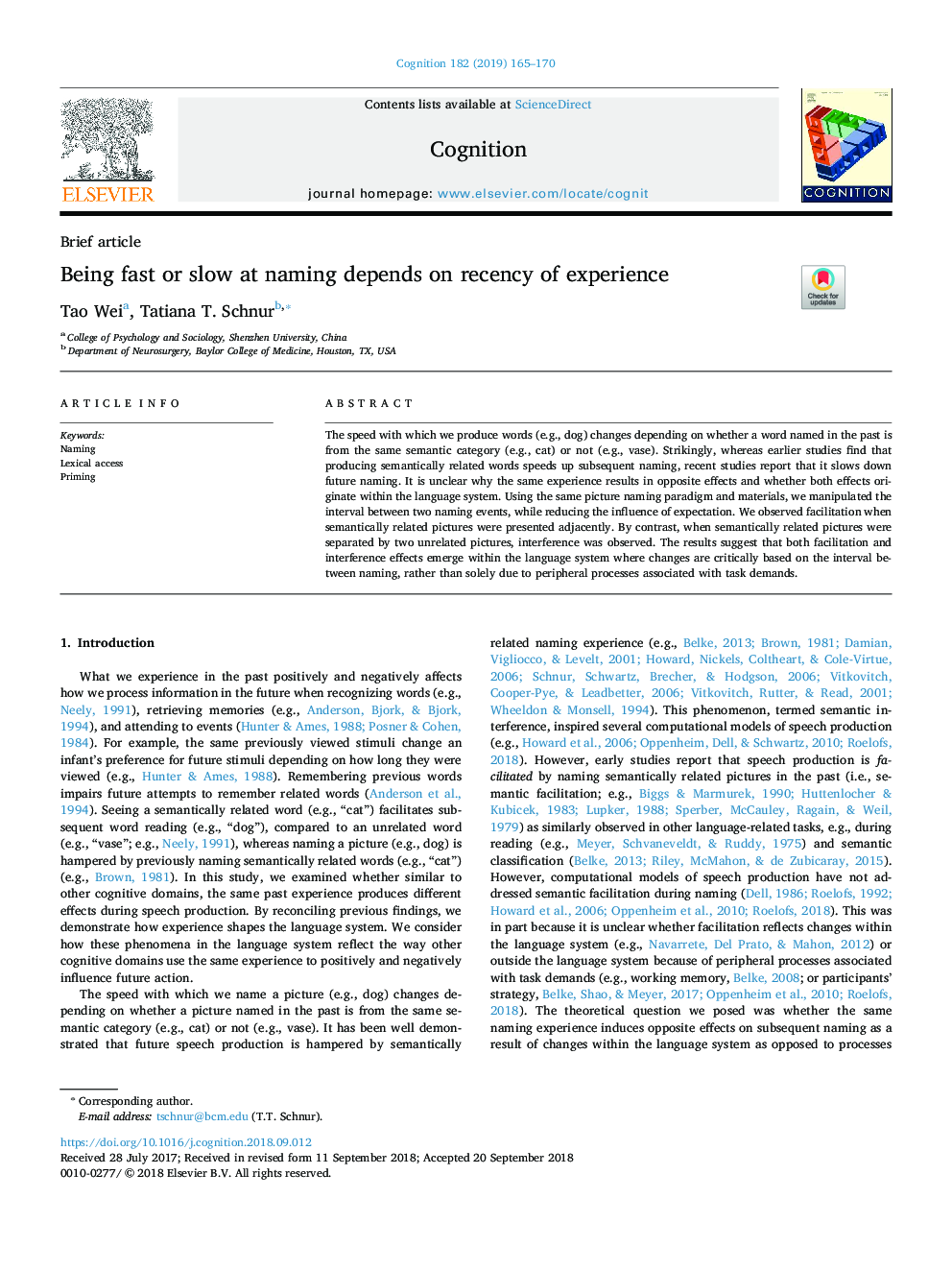| Article ID | Journal | Published Year | Pages | File Type |
|---|---|---|---|---|
| 11029808 | Cognition | 2019 | 6 Pages |
Abstract
The speed with which we produce words (e.g., dog) changes depending on whether a word named in the past is from the same semantic category (e.g., cat) or not (e.g., vase). Strikingly, whereas earlier studies find that producing semantically related words speeds up subsequent naming, recent studies report that it slows down future naming. It is unclear why the same experience results in opposite effects and whether both effects originate within the language system. Using the same picture naming paradigm and materials, we manipulated the interval between two naming events, while reducing the influence of expectation. We observed facilitation when semantically related pictures were presented adjacently. By contrast, when semantically related pictures were separated by two unrelated pictures, interference was observed. The results suggest that both facilitation and interference effects emerge within the language system where changes are critically based on the interval between naming, rather than solely due to peripheral processes associated with task demands.
Keywords
Related Topics
Life Sciences
Neuroscience
Cognitive Neuroscience
Authors
Tao Wei, Tatiana T. Schnur,
